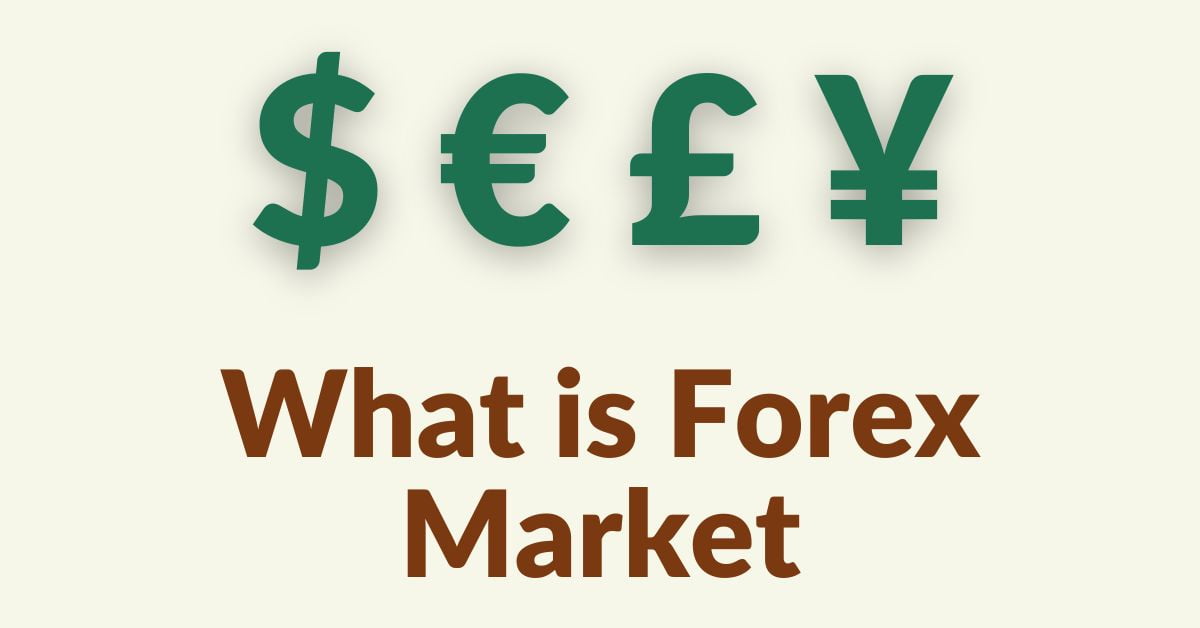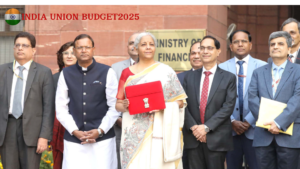The Forex trading market is the biggest market in the world with an average daily transaction of over $7 trillion.
- What is Forex Market?
- Overview of the FX market timing and participants
- Understanding Currency Exchange Rates
- A currency pair example in forex market trading
- Why Forex Market Trading Is Special?
- Size of the Forex Market’s Trading
- Importance of Supply and Demand in Forex Trading
- Understanding the Role of Central Banks in Forex Trading
- FAQ
- Conclusion
What is Forex Market?
The Forex market is a vast and decentralized market where currencies from all over the world are traded. The Forex market supports international trade and investments by offering a smooth platform for currency conversion.
Overview of the FX market timing and participants
Everybody has access to the forex market, also known as the foreign exchange, or FX, currency market. This is open every day of the week for 24 hours. The forex market is much bigger than all other trading markets in the world in terms of volume, value, and liquidity.
The currency of a particular country serves as the main component of forex trading. So, unlike stocks, commodities, or any other type of derivative instrument, it plays a strong role in the FX market. Banks, governments, large corporations, and individual traders all participate in the Forex market.
Singapore, the United States, and the United Kingdom are the three largest and most significant markets for forex trading. Participants in forex trading include central banks, large multinational banks, financial institutions, and retailers from around the world.
Forex trading is open around the clock except for Saturday and Sunday. New Zealand opens ahead of Australia, the Middle East, Asia, Europe, and America in terms of timing.
Any trader can trade any currency at any moment of the day by speculating on news, events, or any fundamental shift that occurs throughout the world on a certain trading day.
The massive volume and liquidity that forex trading gives traders every second, eradicating geographical restrictions, is its most alluring feature.
Understanding Currency Exchange Rates
Currency exchange rates refer to the price at which one country’s currency is set against another’s for trade on the FX market. Traders make predictions about the exchange rates of two nations when wagering on buying or selling foreign currencies.
Currency fluctuations and trends depend on supply and demand. Global news and events specific to a country also affect them. On the foreign exchange market, the value of other currencies can impact the exchange rate of a country. Bilateral trade agreements are based on the exchange rates between the currencies of two countries.
A currency pair example in forex market trading
Every country accepts the US dollar as the baseline when conducting international trade. So, in order to express foreign currencies, the Forex market always uses the U.S. dollar in a pair with the relevant country. As an example, the currency exchange rate between the US dollar and the Indian rupee is denoted by the acronym USD/INR.
USD/INR is the pair between the U.S. dollar and the Indian rupee in order to express the rupee in terms of dollars on a particular day. Knowing the USD/INR exchange rate for a given day makes it simple to calculate the required amount of rupees to buy one U.S. dollar.
If the USD/INR exchange rate, for instance, is 82, it signifies that 82 Indian rupees must be spent in order to buy one US dollar.

Why Forex Market Trading Is Special?
- Unlike the stock market and commodity markets, it offers enormous volume and liquidity. Buyers and sellers don’t have to worry about volume or liquidity while placing orders at any time of day or night.
- Geographical restrictions have little effect on trading because it is always accessible from anywhere in the world.
- It is open every day of the week, 24 hours a day, excluding weekends.
- Forex brokers provide traders with bigger margins and leverage than equities or commodities brokers do, enabling traders to increase their profits with a smaller initial investment.
- The currency market is challenging to control or manipulate since it is susceptible to several worldwide influences.
- Price control by participants or operators is frequent in the equity market. But it is hard for one group or gang of operators to control the price in the forex market due to the simultaneous availability of millions of traders worldwide to the platform.
Size of the Forex Market’s Trading
The FX market is the biggest market in the world. With an average daily transaction of over $7 trillion, the global FX market dwarfs the international equity and futures markets. London dominates the market in Europe.
Singapore, Hong Kong, and Japan are the top three Asian nations whose shares of worldwide forex trading volume are growing.
Singapore, the United States, and the United Kingdom are the top three nations that contribute to worldwide currency trading. 43.1% of all forex trading activity worldwide comes from the United Kingdom.
USD/EUR, USD/JPY, and USD/GBP are the three most widely used currency pairs. 88% of all international currency exchange transactions take place in US dollars.
Importance of Supply and Demand in Forex Trading
Supply and demand plays a crucial role in determining the value of a currency in the Forex market. Forex trading is all about buying and selling different currencies. The value of a currency is determined by how many people want to buy or sell it. In the Forex market, the value of a currency can change quickly because of the many participants and the large amount of money involved.
If more people want to buy a certain currency, its value will go up, and if more people want to sell it, the value will go down. So, this is an important concept to understand in Forex trading, as it can help you predict how the market will move. Additionally, global events and economic indicators such as GDP and inflation can also impact the Forex market.
Even central banks and their monetary policies can affect the supply and demand of a currency. So, by understanding these factors, traders can make more informed decisions and potentially make better profits in the Forex market.
Understanding all these factors will help traders to understand the market better and make more profitable trading decisions.
Understanding the Role of Central Banks in Forex Trading
Central banks have a big influence on the Forex market through their monetary policies. They control interest rates, print money and regulate banks. When they raise interest rates, it makes it more costly to borrow money in that currency, which reduces demand and the value of the currency. When they lower rates, it makes it cheaper to borrow and increases demand for the currency. Central banks also promote economic growth and control inflation. Understanding how central banks impact the Forex market can help traders make better decisions and potentially make more profit.
FAQ
What is meant by the Forex market?
A: The Forex market is a decentralized global market where currencies are bought and sold. The primary purpose of the Forex market is to facilitate international trade and investment by enabling the conversion of one currency into another.
What is Forex trade and how does it work?
Forex trade, also known as currency trading, is the process of buying and selling different currencies in the foreign exchange market with the goal of making a profit. The value of a currency fluctuates based on supply and demand, and traders buy and sell currencies based on their predictions of these fluctuations.
What is Forex in simple words?
Forex, short for FX, is a market where people buy and sell different currencies. The value of a currency changes based on supply and demand, and people can make money by buying low and selling high.
Is Forex good for beginners?
Forex can be a good opportunity for beginners to learn about the financial markets and potentially make a profit. However, it is important for beginners to thoroughly educate themselves on the risks and strategies involved before diving into trading. It’s recommended to start with a demo account and have a good understanding of the market, before starting to trade with real money.
Conclusion
The Forex market is a vital and ever-changing market for currency trading. By understanding the factors that influence the market, such as supply and demand, global news and events, and the actions of central banks, traders can make more profitable decisions to increase their profits. Forex market is a great investment opportunity for those who are willing to take the risk, with proper knowledge and strategies, one can make huge money from the Forex market.




